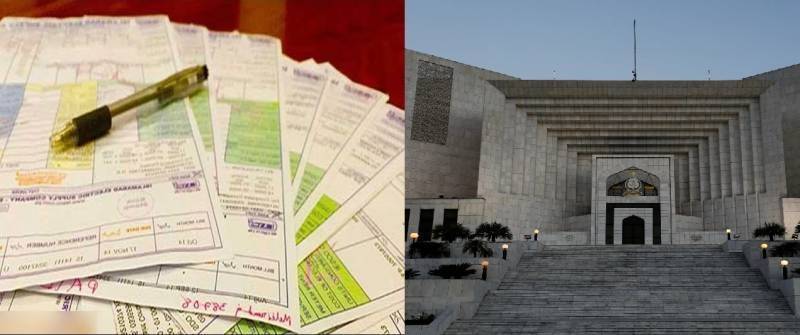Islamabad (Web Desk): The Supreme Court (SC) on Monday adjourned hearing on a number of petitions pertaining to the addition of fuel price and quarterly adjustments in the electricity bills till October 16.
A three-member bench headed by Chief Justice of Pakistan (CJP) Qazi Faez Isa, heard 1,090 petitions seeking a court order to declare the fuel price adjustment in the electricity bills illegal.
The court said that it wouldn’t allow the facility of video link to anyone in the next hearing and all the respondents had to come to SC for arguments.
The CJP said that firstly the court would decide the maintainability of the appeals after hearing arguments on legal points in the next hearing.
At the outset of hearing, Lawyer Khawaja Tariq Rahim maintained the stance that some lawyers had received court notices and several didn’t. He said that he had to appear before a full court bench Tuesday and prayed the court to grant time in this case.
Additional Attorney General Aamer Rehman also prayed the court to grant some time and said that the Attorney General of Pakistan (AGP) wanted to give arguments by himself in this case.
The counsel for Lahore Electricity Supply Company (LESCO) requested the bench to suspend the verdict of Lahore High Court (LHC). The Additional Attorney General said that the decision of LHC had caused a loss worth Rs 40 billion to the national exchequer.
The CJP enquired whether anybody had filed an intra-court appeal against the verdict of LHC. Khawaja Tariq Rahim argued that these appeals were non-maintainable as no ICA had been moved in LHC.
The court, however, said that it wouldn’t accept the request by anybody on the next hearing for adjournment. If someone couldn’t appear, then he had to send an alternative lawyer, it added.
The CJP said that the court was also serving notice to the Attorney General of Pakistan as the cases were related to federal laws.
It may be mentioned that the LHC had declared the fuel price adjustment in electricity bill as illegal.
More than one thousand petitioners had moved the cases to LHC. However, the electricity transmission companies had challenged the verdict of LHC before the apex court.


